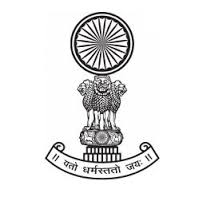Sometimes it seems that researchers need to be reminded that patient safety is the primary consideration of Good Clinical Practice. A heated ethical debate is raging in India over the deaths of 254 women from a control group in a trial of cervical cancer screening methods. Those who died were deliberately given no screening so they would provide a baseline figure for unscreened populations.
The women in the 15-year, US-funded trial was considered by the US Office for Human Research Protections (OHRP) not to have been given adequate information to give informed consent – A cornerstone of GCP.
The trials were conducted among Indian women of the lowest socioeconomic status in Mumbai slums, villages in Osmanabad in Maharashtra and in Dindigul in Tamil Nadu. The studies compared the death rate due to cervical cancer among 224,929 women who were offered different types of cervical screening to that among 138,624 women who were offered no screening at all.
The Helsinki Declaration's guidelines state that "the benefits, risks, burdens and effectiveness of a new intervention must be tested against those of the best current proven intervention". The Indian Council of Medical Research (ICMR) itself stipulates that a placebo can be used only if the disease is self-limiting or when the is no proven preventive, diagnostic or therapeutic method.

Yesterday, the Indian Supreme Court gave the health ministry two months to introduce laws to make drug companies provide additional information before testing new drugs in the country. Under the rules, they would need to specify:
- whether the risk involved in testing the new formulations on human beings is justified by the benefits expected from the exercise
- whether there are unmet needs for the drug in this country necessitating the innovation, and
- whether safer are methods available.
The news report of the cancer screening deaths was used in part to support the move. It was also claimed that, in the past few years, there had been 125 deaths resulting from experiments with one chemical alone, with compensation being given for only five of the deaths.
Adequate information regarding compensation for death and injury was not supplied and there were inconsistencies in what the government stated in the court and what was available from right to information queries.
Judges have now suggested that the compensation could be paid first by the government and it could be recovered from the companies. Victims could be informed about compensation rights through ads or opening an office where they can record their claims.
When it was pointed out that in some cases, years have gone by without any decision, the counsel explained that the government was waiting to see if the victims would receive insurance pay-outs and to assess the actual degree of damage suffered in each case. The judges observed that death may have been preferable to the long term suffering that some have endured.








